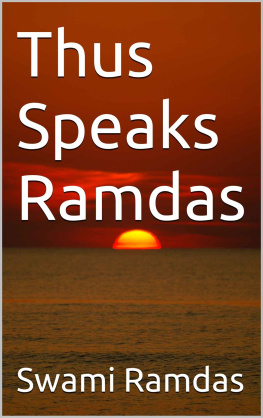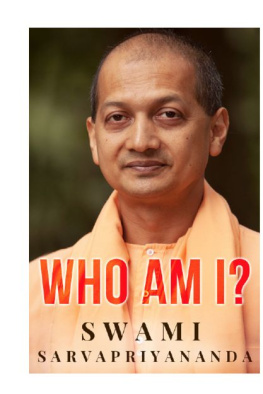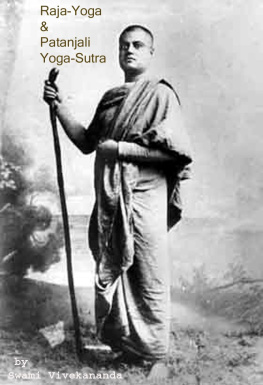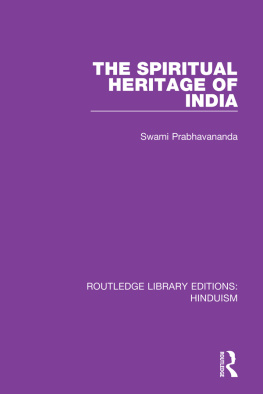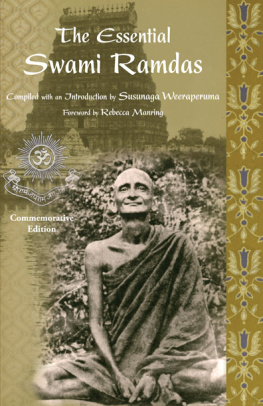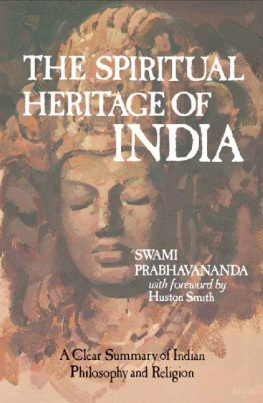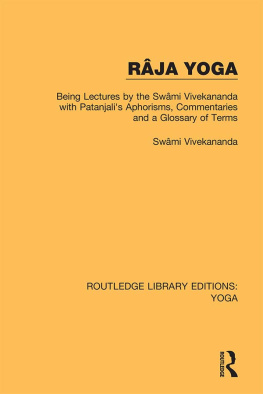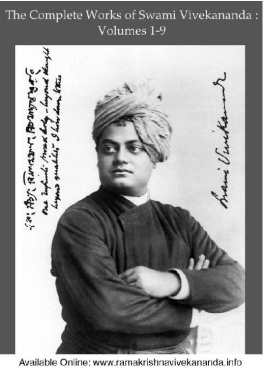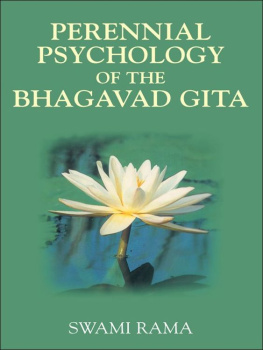Swami Ramdas - The Essential Swami Ramdas (Library of Perennial Philosophy)
Here you can read online Swami Ramdas - The Essential Swami Ramdas (Library of Perennial Philosophy) full text of the book (entire story) in english for free. Download pdf and epub, get meaning, cover and reviews about this ebook. year: 2009, genre: Religion. Description of the work, (preface) as well as reviews are available. Best literature library LitArk.com created for fans of good reading and offers a wide selection of genres:
Romance novel
Science fiction
Adventure
Detective
Science
History
Home and family
Prose
Art
Politics
Computer
Non-fiction
Religion
Business
Children
Humor
Choose a favorite category and find really read worthwhile books. Enjoy immersion in the world of imagination, feel the emotions of the characters or learn something new for yourself, make an fascinating discovery.

- Book:The Essential Swami Ramdas (Library of Perennial Philosophy)
- Author:
- Genre:
- Year:2009
- Rating:4 / 5
- Favourites:Add to favourites
- Your mark:
- 80
- 1
- 2
- 3
- 4
- 5
The Essential Swami Ramdas (Library of Perennial Philosophy): summary, description and annotation
We offer to read an annotation, description, summary or preface (depends on what the author of the book "The Essential Swami Ramdas (Library of Perennial Philosophy)" wrote himself). If you haven't found the necessary information about the book — write in the comments, we will try to find it.
The Essential Swami Ramdas (Library of Perennial Philosophy) — read online for free the complete book (whole text) full work
Below is the text of the book, divided by pages. System saving the place of the last page read, allows you to conveniently read the book "The Essential Swami Ramdas (Library of Perennial Philosophy)" online for free, without having to search again every time where you left off. Put a bookmark, and you can go to the page where you finished reading at any time.
Font size:
Interval:
Bookmark:
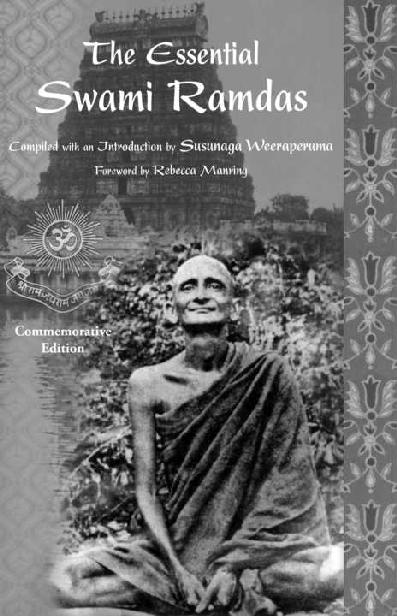
The Library of Perennial Philosophy is dedicated to the exposition of the timeless Truth underlying the diverse religions. This Truth, often referred to as the Sophia Perennis-or Perennial Wisdom-finds its expression in the revealed Scriptures as well as the writings of the great sages and the artistic creations of the traditional worlds.
The Perennial Philosophy provides the intellectual principles capable of explaining both the formal contradictions and the transcendent unity of the great religions.
Ranging from the writings of the great sages of the past, to the perenni- alist authors of our time, each series of our Library has a different focus. As a whole, they express the inner unanimity, transforming radiance, and irreplaceable values of the great spiritual traditions.
The Essential Swami Ramdas appears as one of our selections in the Spiritual Masters: East & West series.

This series presents the writings of great spiritual masters of the past and present from both East and West. Carefully selected essential writings of these sages are combined with biographical information, glossaries of technical terms, historical maps, and pictorial and photographic art in order to communicate a sense of their respective spiritual climates.
Cover: Swami Ramdas
Swami Ramdas
Compiled with an Introduction by Susunaga Weeraperuma
Foreword by
Rebecca Manring

xi
xxv
xxvii
xxix
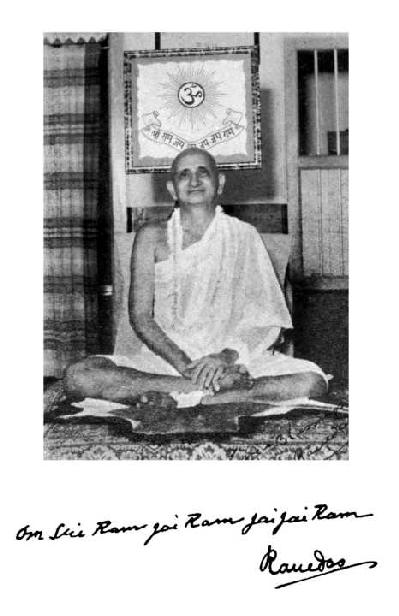

"Bhakti" is the word Indians use for "devotion." Derived from the Sanskrit verbal root bhaj, "share," the term is very broad and certainly not restricted to the practices and attitudes of any given religious tradition. Those who practice bhakti are called bhaktas. Anyone who is engaged in a personal quest for, or relationship with, the divine, is a bhakta, for such individuals have accepted the possibility that we mortal beings can indeed partake of divinity. Thus one could legitimately include most of the world's mystics (at least those associated with the theistic religious traditions) under the bhakta rubric. However, only in India do we find not only a series of elaborately codified systems of devotionalism, but also the phenomenon of unaffiliated yet widely respected individual bhaktas.
"Papa" Ramdas, as most of his disciples called Swami Ramdas, belonged to this latter group. While he himself acknowledged the inspiration and influence of many others, he was not the product of a sectarian lineage. Nonetheless he possessed the quiet charisma to inspire many devotees in his own lifetime and even today. He also sparked the foundation of the Anandashram near the city of Mangalore in the south Indian state of Karnataka, now a formal organization with one of Ramdas' disciples at its head.
For those accustomed to associating religious expression with sectarian norms, rules, and regulations, the idea of "freelance sainthood" probably makes little sense. In India's historically richly diverse spiritual landscape, however, this is not problematic. In fact some scholars (this writer included) are now beginning to think that even within established paramparas, or formal lineages, what is transmitted from one generation to the next may well be more a matter of the individual guru's personal interests than of a strict adherence to the theology of a particular school. This does not indicate that such a sadhu would necessarily have an "anything goes" attitude towards spirituality. The passages in this book indicate clearly that Swami Ramdas did adhere to a number of guidelines regarding diet, behavior, and the like which he had found, through years of practice, to be helpful to an individ- ual's spiritual progress. In the section on "Spiritual Practice" he makes these explicit.
A basic understanding of the history of Indian bhakti may prove useful to this attempt to situate Swami Ramdas in his own cultural/sociological/religious milieu. What follows is a rather sketchy account of a few of the major Indian devotional movements.
The sages of India's oldest extant literature, the hymns of the Rig Veda, the earliest of which may date from the fifteenth century B.C.E., describe a mechanistic cosmology in which correct ritual action would automatically yield the desired results: pregnancy safely concluded, successful harvest, victory in war, and the like. The emotions-something that would matter tremendously to the medieval bhaktas-of the ritualists were of no consequence. Rather what mattered, what determined the success of the ritual, was the perfect recitation of the mantras involved as a priest perfectly performed the ritual in question. In fact this perfect reproduction of the sounds became so important that understanding what one was saying in the process came to be of little or no concern. Priests focused their attention not on cultivating a relationship with the divine but on perfecting their Vedic recitation, for the desired response from the heavens would then be ensured.
as a dialogue between two important characters, Arjuna and Krishna, we see the development of the notion of a very clearly personal relationship with one particular deity (in this case, Krishna). Throughout the greater epic, the Mahabharata, into which the Gita is a later interpolation, we find numerous stories of human-divine interaction. In fact the five Pandava brothers, the heroes of the epic, are openly acknowledged to be the sons of the gods Dharma (Yudhisthira), Vayu (Bhima), Indra (Arjuna), and the Aswin Brothers (Madri's twin sons Nakula and Sahadeva). This peculiar development beautifully illustrates the perennial kshatriya problem of dynastic succession in the absence of sons, a problem which the authors of the epic resolve in a remarkable way. The five princes are born as the result of serial adultery sanctioned and in fact necessitated by a long-standing curse on their legal father King Pandu, who would (and eventually does) die if he ever approached a woman sexually, and a coincident boon their mother Kunti had long ago received that allowed her to summon any god she wished to father her child (and which she shared with her co-wife Madri). She had tested this boon some time before her marriage when she was still quite young, calling Surya the sun-god to her bedchamber. Surprised to discover that the boon actually worked, she only consented to their union when he promised her that their child would be born immediately, secretly hidden elsewhere, and that he would then restore all physical evidence of her virginity. Overcome by fascination and curiosity, and assured she would have no need to conceal an embarrassing and scandalous pregnancy, Kunti shortly gave birth to the prince who would be known as Karna, whom she sent downriver in a basket to be raised by a humble charioteer and his wife. Karna would spend his life dealing first with the ignominy of being raised in a low-caste family, and later, when he had learned his own history, of being rejected by his mother by birth, and so came to regard his biological brothers as his mortal enemies. He would eventually be slain in battle (under somewhat deceitful circumstances) by his own brother Arjuna.
Font size:
Interval:
Bookmark:
Similar books «The Essential Swami Ramdas (Library of Perennial Philosophy)»
Look at similar books to The Essential Swami Ramdas (Library of Perennial Philosophy). We have selected literature similar in name and meaning in the hope of providing readers with more options to find new, interesting, not yet read works.
Discussion, reviews of the book The Essential Swami Ramdas (Library of Perennial Philosophy) and just readers' own opinions. Leave your comments, write what you think about the work, its meaning or the main characters. Specify what exactly you liked and what you didn't like, and why you think so.

